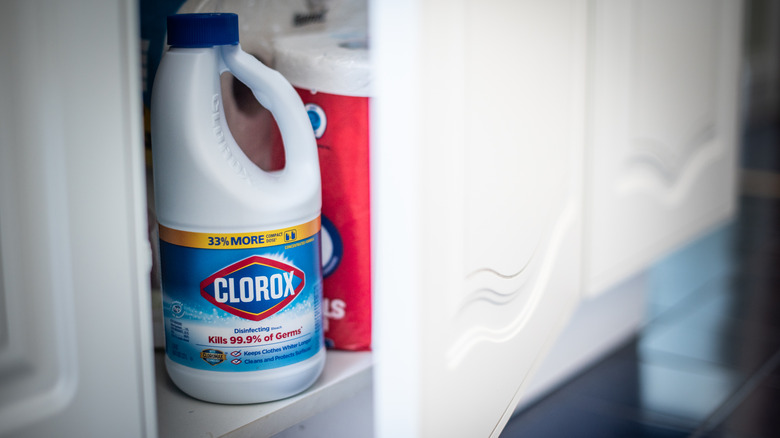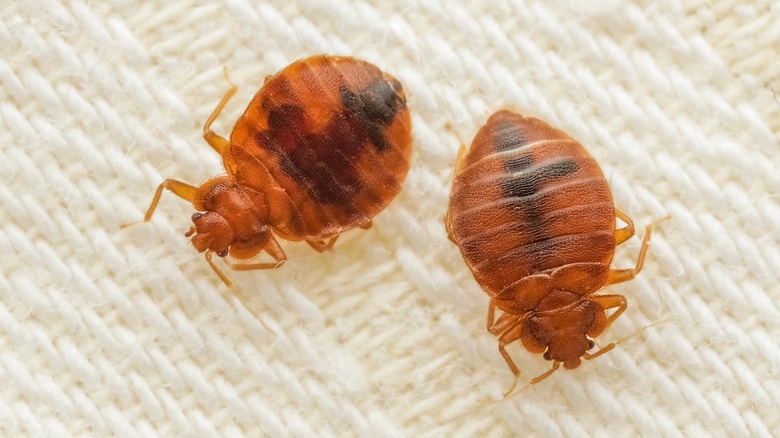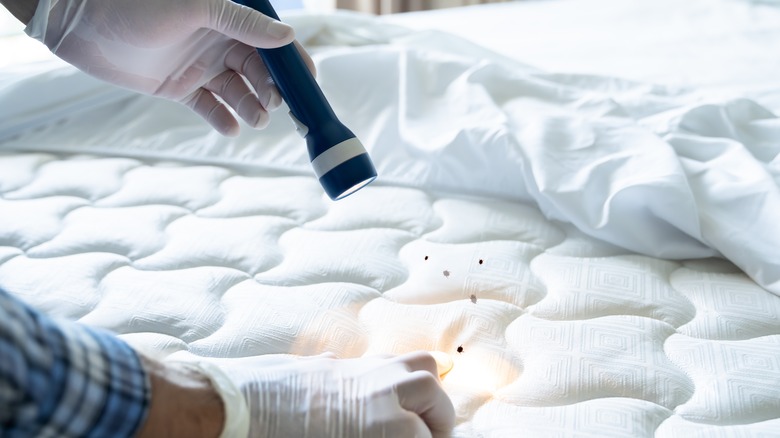Can Bleach Be Used To Get Rid Of Bed Bugs?
Once the initial panic wears off, it's common to have some questions about bed bugs when you are seeing signs of these pests inside your home. Understandably, your first question probably involves how to get rid of them as quickly as possible. The thought of having these blood-sucking insects in your bed is the stuff of nightmares. One home remedy you may hear about involves using bleach to get rid of bed bugs. But does it work? Technically, it would work to kill these pests. However, the dangers involved and the amount of bleach you have to use make this method a less desirable option than some other choices. Exposure to bleach can cause several health problems, including skin, eye, and mucous membrane irritation.
Although most people will use bleach to help with cleaning and washing clothes, it works as a pesticide, too. The hypochlorite acid within bleach will absorb into the bodies and eggs of the bed bugs, eventually killing them. Bed bugs do not need to drink water like most animals, as they receive liquid from their food – which is human blood! However, they do need oxygen, occasionally breathing through their tracheae, which are small tubes inside their bodies. These small holes and tubes give the bleach a means of penetrating the body of the pest. The acidic solution also can cause a disintegration of the insect's shell, basically causing it to suffocate.
Why it's challenging to kill bed bugs with bleach
To allow the bleach to attack the bodies of the bed bugs, you must apply it directly onto the insects. This is a significant challenge for several reasons. Bed bugs do not have a natural attraction to bleach. As mentioned earlier, they don't drink water, so there is almost no chance of the pest willingly investigating a bowl with bleach in it. You would need to seek out the pests and apply the solution onto them, either by spraying or by splashing it onto them, however, using these methods to kill bed bugs is inefficient and challenging. These pests typically move at night, coming out to feed on people sleeping on their beds, so you often will not see them, even if you have a large infestation in your home.
If you are trying to find them during the daytime, you will have to hunt for them in areas where they often hide. They can hide behind baseboards, in crevices of bed frames, in drawer joints, in the folds of curtains, behind outlet and light switch covers, and in seams of furniture cushions. Should you manage to find some of the bed bugs, directly applying bleach to their tiny bodies without getting it on other objects in the vicinity is extremely difficult — an adult insect is only about the size of an apple seed.
Why using bleach to try to kill bed bugs can be dangerous
Bleach is a solution that can lead to health problems for people who come into contact with it — in fact, some experts say you should stop using bleach at your home altogether. If it comes into contact with the eyes or skin, it can lead to significant irritation. Fumes can irritate the membranes inside the nose, throat, and lungs. Should you leave bleach in a bowl while trying to attract bed bugs, a pet might drink the solution, which can lead to dangerous health problems that require immediate medical care for the pets.
Beyond the health concerns, applying bleach to objects in your home could cause damage and discoloration that is difficult to fix. If you are trying to splash bleach onto the bed bugs and some of it splashes onto the walls, it could cause damage to the paint unless you've diluted it. If you splash the solution onto a bed, bleach will negatively affect colored bed sheets and blankets, and if you get it on the frame or a hardwood floor it may result in unwanted discoloration. Ultimately, the best option for trying to eliminate bed bugs is to seek help from a pest control professional. These pros often can deliver treatments safely and effectively, and they usually provide a guarantee.


